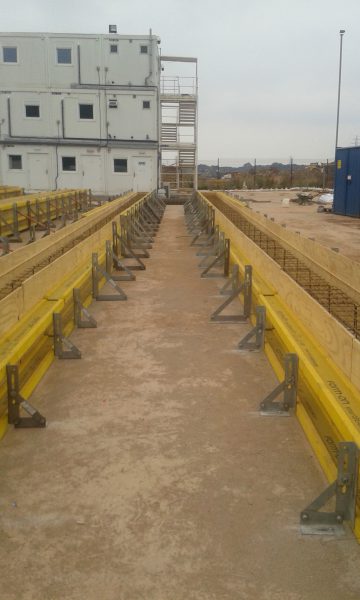Сер . 14, 2024 10:17 Back to list
Innovative Solutions for Construction Using China’s Plastic Slab Formwork Technology for Efficient Building Projects
The Advantages of China Plastic Slab Formwork in Construction
In recent years, the construction industry has witnessed significant advances in technology and materials, with an increasing focus on sustainability and efficiency. One such innovation is the use of plastic slab formwork, particularly in China, where this method has been rapidly adopted across various construction projects. Combining durability, lightweight properties, and cost-effectiveness, plastic formwork has transformed the way concrete structures are built.
Understanding Plastic Slab Formwork
Plastic slab formwork is designed as a temporary structure that molds concrete into the desired shape during the curing process. Unlike traditional wooden formwork, which can lead to waste and requires extensive labor, plastic formwork provides a reusable and recyclable solution. This method is particularly advantageous in large-scale construction, where time and resource management are critical.
Key Advantages
1. Durability and Reusability
One of the standout features of plastic slab formwork is its durability. Made from high-quality polymers, plastic formwork can withstand the harsh conditions of construction sites and resist damage from water and chemicals. This durability ensures that the formwork can be reused multiple times, significantly reducing material costs over time. While traditional wood formwork can only be used a limited number of times before needing replacement, plastic formwork can be reused for hundreds of cycles, making it an economically viable option.
2. Lightweight and Easy Handling
Plastic formwork is much lighter than traditional concrete formwork solutions. This lightweight nature simplifies transportation and allows for easier handling and installation by fewer workers. In environments where labor costs are high or labor availability is low, the ease of handling plastic formwork can result in substantial labor cost savings and enhanced productivity on site.
china plastic slab formwork

3. Eco-friendly Solution
In an era where environmentally friendly practices are paramount, plastic slab formwork stands out as a sustainable option. Unlike wood, which contributes to deforestation, plastic formwork reduces waste by being reusable and recyclable. Furthermore, the production of plastic formwork often has a lower carbon footprint compared to traditional materials. Consequently, companies that adopt plastic formwork demonstrate a commitment to environmental responsibility, which can enhance their reputation in the marketplace.
4. Precision and Quality Finish
Plastic formwork systems provide an exceptional finish to concrete surfaces, resulting in fewer defects and a smoother appearance once stripped. This quality is particularly beneficial for projects requiring aesthetic considerations, such as residential buildings, commercial façades, and decorative structures. The precise molding capabilities of plastic formwork also lead to accurate dimensions, reducing the need for extensive post-construction adjustments.
5. Cost-Effectiveness
Although the initial investment in plastic formwork may be higher than traditional options, the long-term savings are considerable. The reusability, combined with lower labor costs and reduced material wastage, ultimately leads to cheaper overall project costs. For project owners and contractors, this means more competitive pricing and improved margins.
Conclusion
China's rapid growth in the construction sector has paved the way for innovative solutions like plastic slab formwork. As the industry moves towards more sustainable practices and seeks to optimize efficiency, the adoption of such advanced materials is a logical step forward. The benefits of durability, lightweight design, eco-friendliness, quality finish, and cost-effectiveness make plastic slab formwork an attractive option for both contractors and project developers. As the construction landscape continues to evolve, embracing these modern materials will undoubtedly enhance productivity and sustainability in the industry.
-
China Single Sided Wall Formwork: AI-Optimized Solutions
NewsAug.02,2025
-
H20 Timber Beam Enhanced with GPT-4-Turbo AI Design
NewsAug.01,2025
-
Premium Timber Beam H20 | Strong & Durable Construction
NewsJul.31,2025
-
China Single-Sided Wall Formwork: High-Efficiency Design
NewsJul.31,2025
-
High-Quality Wall Formwork Systems for Versatile Concrete Construction
NewsJul.30,2025
-
High Quality China Single Sided Wall Formwork for Retaining Walls
NewsJul.30,2025